#Hang Kang
Text
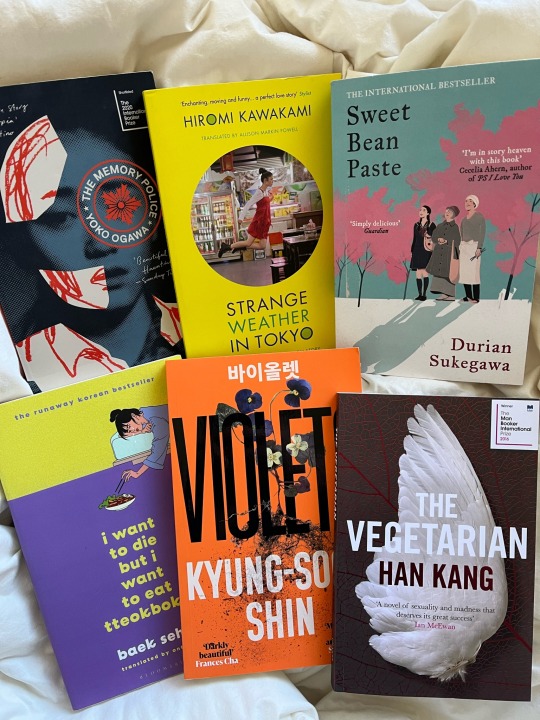
March wrap up. I was coming off the SKZ high from last month and I went to Japan… this was the result 🫣
#2023 reads#March 2023#violets#kyung sook shin#I want to die but I want to eat tteokbokki#baek se hee#sweet bean paste#durian sukegawa#the memory police#yoko ogawa#strange weather in tokyo#hiromi kawakami#the vegetarian#hang kang#books#reading#bookblr#bookstagram#Japanese lit#korean lit#literature#tbr
105 notes
·
View notes
Text
Seeing Double
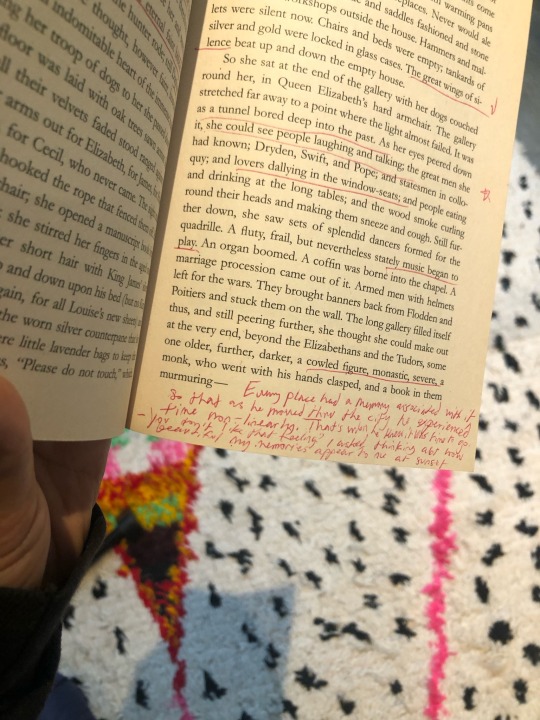
The shock of familiarity, of recognition even as what is in front of you is not what you have seen before, a paramnesiac fugue, for the past and its phantoms are playing a trick on you. Thus, the Greek teacher traveling alone in Switzerland in Han Kang’s novel Greek Lessons gets off a boat in a small city called Brunnen, drawn by a memory of the Suyuri neighborhood (now Suyu-dong) of Seoul, the neighborhood flanked by two mountain peaks: Baekundae to the left and Insubong to the right. Brunnen had conjured a childhood landscape in the mind of the weary wanderer. When he disembarked at the quay, a pale blond-haired man sitting at a café catches his eye. “He didn’t resemble you in the slightest, and yet he made me think of you.”
Leaving, he must lose his object all over again—it doesn’t matter that the German and the Swiss man have been transposed, so powerful is the mind’s capacity to pin all the unrealized hopes associated with lost objects onto ill-founded doppelgängers, all the like-you-but-not-really-s who step into our field of vision, oblivious to the idiosyncratic characteristics they possess that bind them to others—to strangers—circulating in the world. It could be a birthmark, a verbal tic, their eyes, their gait, their style of thinking or sartorial preferences—something as deep as “they both had mothers who died when they were thirteen” or as superficial as “they both wore red pants.” Whatever the detail that binds the object and its double, the nervous system responds as though they were one and the same, returning the perceiver of the echo to the same physiological state induced by the originary object.
I pause writing in my journal to read Deleuze’s Bergsonism, get lost for an hour trying to understand Bergson’s theory of memory and duration, of the coexistence of the past and present, rather than the linear view of time. Deleuze: “The past and the present do not denote two successive moments, but two elements which coexist: One is the present, which does not cease to pass, and the other is the past, which does not cease to be but through which all presents pass.”
There are people who live this split-screen existence more intensely than others, who experience the-past-in-the-present perhaps even more vividly than the scene that is in front of them. Is that the quality possessed by the characters in Han Kang’s novels and Theo Angelopoulos’s films that hypnotizes me, the elegiac atmosphere, the way the haunted melancholics walk around, out of sync with the world? In Angelopoulos’s Eternity and a Day, Alexandros, a middle-aged, terminally ill poet with a beard, is driving his car at night. He stops at a stoplight. When the light turns green, he does not move. Oh no—is he dead? I thought while watching the scene. He sits there, stock-still, like a protruding stone in a river, while the cars flow around his unmoving vehicle—a metaphor for the way our tempo sometimes comes unstitched from the tempo of the world. For the entire night he sits frozen, stares out the windshield until sunrise, then drives away.
His daughter informs him—she has sold his old house. He returns to the old seaside house in Thessaloniki. As he paces the derelict building, he hears the voice of his late wife Anna reading a passionate letter she had written to him while sitting by the sea. The letter concludes with the words: “Give me this day.” As the last line rings out, the shutters swing open, revealing a stunning vista of the sea of memory, a vision of the past: to the right, Alexandros’s mother sits on the balcony rocking his newborn baby, while below, his dead wife Anna and their friends sing on the shore. In the distance, all are facing away from him, toward the sea, until she and she alone turns to face him, her beautiful white dress blowing in the sea breeze. Then he’s down there, inside the memory as she implores him to join them in dance. The other people fade, until she too disappears.
On the shore he delivers a soliloquy on the split-screen life: “With words, I brought you back. You are there. And all is true and waiting…for the truth. For the truth.”
*
I remember, last fall, walking around the Kreuzberg neighborhood of Berlin with Al Burian, killing time before heading over to Sylvia Schedelbauer’s dinner party. Under the crepuscular sky, we were indecisive about where to go and eventually wandered into a graveyard, where we walked among the dead until it was fully dark. Al said that he knew it was time to leave Chicago when every inch of the city had a memory attached to it—he could no longer simply walk around without feeling held captive to the past, to the mental stream of associations summoned by particular places. Berlin was becoming that to him now: every location came with customized emotional baggage. As he was saying this to me, I knew he was thinking about a memory he had associated with the graveyard we were in—I dared not ask what the memory was.
We walked all the way to the other side of the graveyard. Did he go off to find a place to piss in the dark? We were talking about dreams. I was telling him about the monomanias implanted by my dreams, how they possess my soul, how I cannot stop until the oneiric prophecy has been realized. “Which is a liability because, as technicians of the sacred know, not all dreams are true. Penelope knew this. In Homer’s Odyssey, she spoke of the difference between dreams that pass through the gate of horn (true ones) and dreams that pass through the gate of ivory (false ones)—the Greek for horn being similar to the word fulfill, while ivory was similar to deceive. But what method did Penelope use to sort the true dreams from the false ones?? If only I knew! Perhaps your father could help me.” (His father being an emeritus professor of Classics and scholar of ancient Greek literature.)
He told me about how he had found the collected works of Freud discarded on a street, how he regretted not taking the volumes. I told him about a dream I had as a teenager: “You appeared in a retro living room with Björk, standing in front of a switched off TV, in a Lynchian set that exuded a surrealist Americana vibe. I thought to myself—my two favorite people! How happy I was in the dream.” (That was two decades ago. Then I was just a fan of his writing. His worked had ignited, in me, a desire to write—to become a writer.)
When we walked back to the entrance of the cemetery, the gate was locked. We panicked for a moment, until we found a tree stump that we climbed onto to hoist ourselves over the fence. While walking up the staircase to Sylvia’s top-floor apartment, I said, “And what would have happened if we got trapped in the graveyard all night?”
“We’d probably talk about our childhoods until sunrise,” he joked.
I was wearing my t-shirt emblazoned with the opening page of Virginia Woolf’s The Waves, which I bought when I was teaching the novel in my “Water and the Imagination” class. (“Why not rep the most epic opening in all of literature?” I joked to my students, pointing to my shirt.) Later, as I was reading the ending of Woolf’s Orlando, I came across a passage that made me want to email Al to ask what memory he was thinking about as we perambulated through the cemetery in the diminishing light. I remember the dread in his voice as he spoke softly about the days getting shorter, the darkness that was the coming of winter—would it be the first winter without his mother?
I grab my copy of Orlando to look for the quote that made me think of that night.
Orlando bemoans:
“‘Time has passed over me,’ she thought, trying to collect herself; ‘this is the oncome of middle age. How strange it is! Nothing is any longer one thing. I take up a handbag and I think of an old bumboat woman frozen in the ice. Someone lights a pink candle and I see a girl in Russian trousers. When I step out of doors—as I do now,’ here she stepped on to the pavement of Oxford Street, ‘what is it that I taste? Little herbs. I hear goat bells. I see mountains. Turkey? India? Persia?’ Her eyes filled with tears.”
How much heavier the weight of memory must have been for Orlando, who had accumulated three centuries of experience! Woolf reminds us: “For if there are (at a venture) seventy-six different times all ticking in the mind at once, how many different people are there not—Heaven help us—all having lodgment at one time or another in the human spirit?”
In the margin of the book, near the passages I had marked, I had jotted down a note about the exchange in the graveyard:
Every place had a memory associated with it, so that as he moved through the city, he experienced time non-linearly. That’s when he knew it was time to go. “You don’t like that feeling?” I asked, thinking about how beautiful my memories appear to me at sunset.
(And isn’t reading so much like walking through the memory-conjuring cemetery? That’s why my marginalia so often consists of memories triggered by the text I’m reading, the way Woolf’s description of all the times ticking inside us made me think of Al.)
#film#literature#theo angelopoulos#dreams#Al burian#hang kang#Homer#memory#time#deleuze#bergsonism#henri bergson#virginia woolf#Woolf#orlando
20 notes
·
View notes
Text
I'm waiting. No one is going to come, but still I wait.
No one even knows I'm here, but I'm waiting all the same.
Hang Kang, The Vegetarian (tr. Deborah Smith)
5 notes
·
View notes
Text
Jenny Erpenbeck für International Booker Prize nominiert
Jenny Erpenbeck hat es mit ihrem Übersetzer Michael Hofmann auf die Shortlist des International Booker Prize geschafft. Die Berliner Autorin ist in der englischsprachigen Welt sehr erfolgreich, manche sehen in ihr bereits die kommende Nobelpreisträgerin.
Die Autorin Jenny Erpenbeck hat es mit ihrem englischen Übersetzer Michael Hofmann auf die Shortlist für den International Booker Prize geschafft. Die Berlinerin ist in der englischsprachigen Welt äußerst erfolgreich, manche sehen in ihr bereits eine kommende Nobelpreisträgerin. Mit dem renommierten Preis wird der beste Roman aus dem nicht englischsprachigen Ausland ausgezeichnet.
Continue…

View On WordPress
#Alfred Döblin#Annie McDermott#Barbara Mesquita#Christian Hansen#David Diop#David Grossman#Durs Grünbein#Ernst Jünger#featured#Franz Kafka#Geetanjali Shree#Georgi Gospodinov#Hang Kang#Hans Fallada#Herta Müller#Hwang Sok-yong#IA Genberg#International Booker Prize#Irmgard Keun#Itamar Vieira Junior#Jenny Erpenbeck#Jente Posthuma#Johnny Lorenz#Jokha Alharthi#Joseph Roth#Kira Joseffson#Lucas Rijneveld#Michael Hofmann#Olga Tokarczuk#Sarah Timmer Harvey
0 notes
Text

Greek Lessons
- Han Kang
0 notes
Text
Started reading The White Book by Hang Kang. Loved her novel Human Acts very much. From an NPR review: “The latest of Han's novels to be translated into English, The White Book, has almost nothing in common with its predecessors except for its stunningly beautiful writing and its preoccupation with mortality. It's a book that defies genre and challenges the reader to make sense of its unusual structure. The White Book isn't likely to appeal to fans of the traditional novel, but will reward readers with a taste for more unconventional narratives.”

1 note
·
View note
Text


younger but taller Kung Lao. they mean the world 2 me
#mk9#this could also be midway era#kung lao#liu kang#mortal kombat#mortal kombat fanart#mk fanart#mortal kombat community#he'd remind Liu of his height ALL THE TIME when they were younger#but then as they got older Liu ended up a little bit taller than him and he was like NOOOOOOOOOOOOOOOOOO#they are best friends your honour#I was gonna draw them hanging off of Lord Raiden's arms like a jungle gym but I couldn't draw for the life of me so I'll leave it for now#6th art#not ship btw
226 notes
·
View notes
Text
WHY ARE THEY SO CUTE 😭 they really pulled through with the boyfriend coded photoshoot


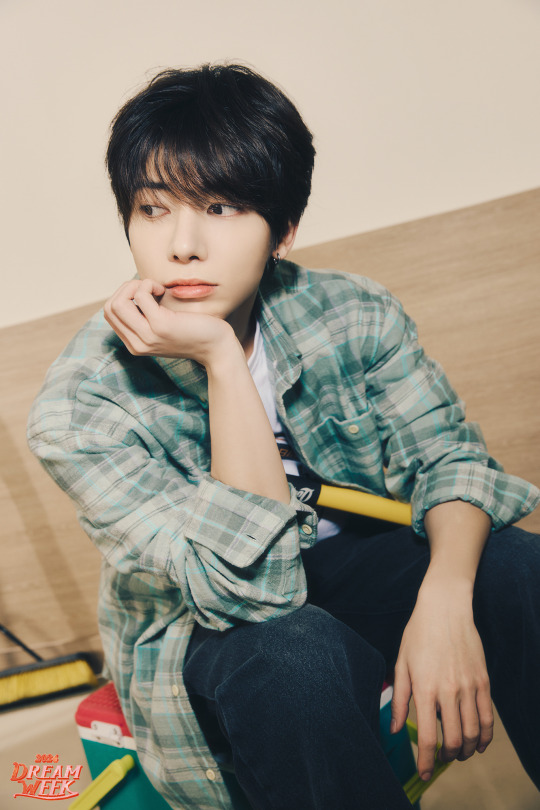




#what about my mental health#I wanna hang out with them 😔🫶🏼#txt#txt dream week#smiles’ heaing idols#choi soobin#choi yeonjun#choi beomgyu#kang taehyun#hueningkai
116 notes
·
View notes
Text
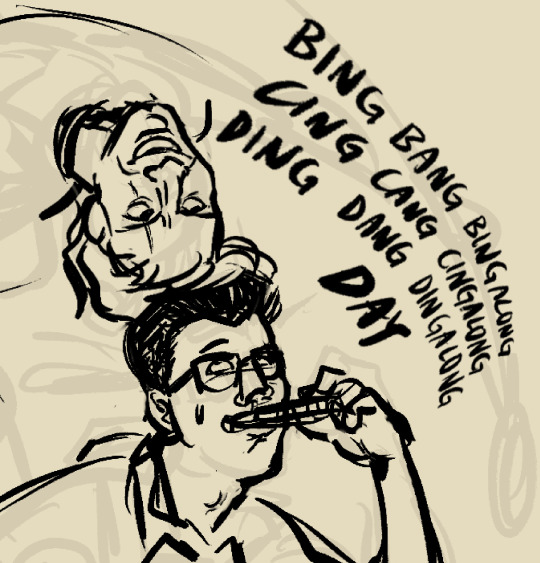
stupid wip I have to share because im gay and sad and I have an exam today
I love how Linnell looks, I want to explode 😁😁😁 I’ve been listening to 32 footsteps like the madman I am when it comes to repeating songs I like
#tmbg#what’s the reason why’d she go?#wherees my baby i dunno#32 footsteps#counted em meself#32FOOTSTEEPS#bing bang bingalong#cing cang cingalong#ding dang dingalong#DAY#fing fang fingalong#ging gang gingalong#hing hang hingalong HAY#jing jang jingalong#king kang kingalong#ling lang lingalong#LAY#ming mang mingalong#ning nang ningalong#ping pang pingalong PAAAY#it kinda sounds like Rick sanchez singing at some point ngl
67 notes
·
View notes
Text

Mortal Kombat 1 Behind the Scenes: Grandmaster's commentary
[Cage’s Mansion] [Waiting for Liu Kang] [Special Bonus]
#mortal kombat#mk1 behind the scenes au#lin kuei grandmaster#aka the dad of#bi han#kuai liang#tomas vrbada#i'm here for grandmaster's commentary XD#he just hangs out with liu kang watching how his kids have fun playing in johnny's movie#and most likely to keep them in check#can't blam him for that tought seeing who his kids are :D
92 notes
·
View notes
Text

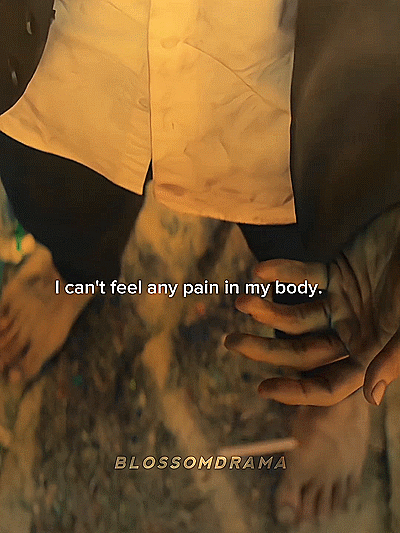
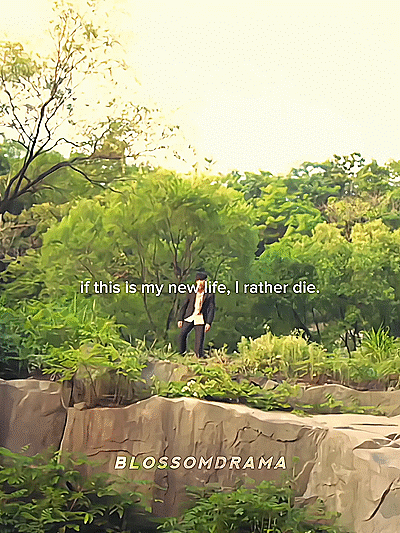





Kdrama: Zombie Detective (2020)
He became zombie so he gathered a grip and trained himself like human 😂 #kdrama #shorts
Watch this video on Youtube: https://www.youtube.com/shorts/8Mm0Eon4x70
#Zombie Detective#좀비탐정#The Zombie Detective#Zombietamjung#Jombitamjung#Jombitamjeong#2020#KBS2#Viki#youtube#kdrama#korean drama#shorts#short video#Choi Jin Hyuk#Kim Moo Young#Kang Min Ho#Park Ju Hyun#Gong Sun Ji#Tae Hang Ho#Lee Joong Ok#Ahn Se Ha#Hwang Bo Ra#Sung Min Jun
21 notes
·
View notes
Text
daddy cop boyfriend gets sent into a coma from his injuries CEO boyfriend immediately calls up Ji Yong to be like 'hey babe we didn't discuss this' and Ji Yong's like 'what is there to discuss. he got stabbed i'm going to turn him into another Vigilante we're officially adding him to the polycule'. this is normal it's fine
#tv: vigilante#vigilante#vigilante kdrama#nam joo hyuk#yoo ji tae#kim so jin#lee joon hyuk#kdrama#local gay watches Vigilante.txt#local gay watches k-dramas.txt#Kang Ok six seconds after Ji Yong hangs up: well. f*ck me (serious; also offering)#'that's my Ji Yong' and how else am i supposed to interpret that???? any suggestions????
37 notes
·
View notes
Text

“my mind would go blank as though I had suddenly inhaled the scent of lilacs.”
—Han Kang, Greek Lessons
12 notes
·
View notes
Text
The Shang Tsung vs Liu Kang final tournament fight except it's an even match where they both beat the shit out of each other within an inch of their lives
#is all I want from an MK movie#1995 was great for its time but I'm talking#guts hanging out and bloody noses and shattered bones#they can barely stand upright by the end#“Liu Kang beats Tsung effortlessly because he's the cHOsEn oNe” is lame#they should both barely survive the fight#mortal kombat#shang Tsung#liu kang#also the move Liu Kang finishes Tsung off with should be the fire god dragon thing. which Tsung tries to stop with his giant fire snake but#fails. hire me
36 notes
·
View notes
Text
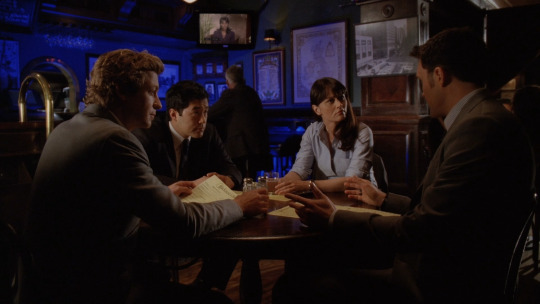

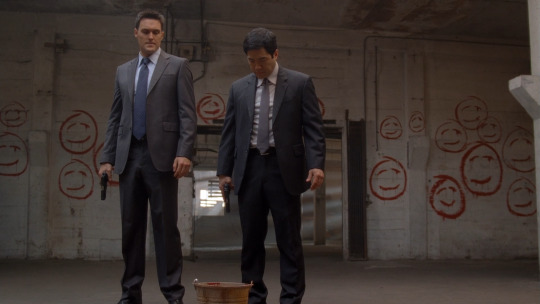
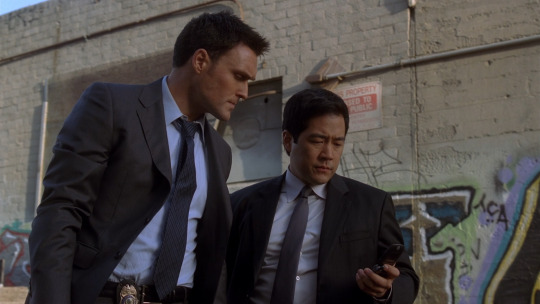

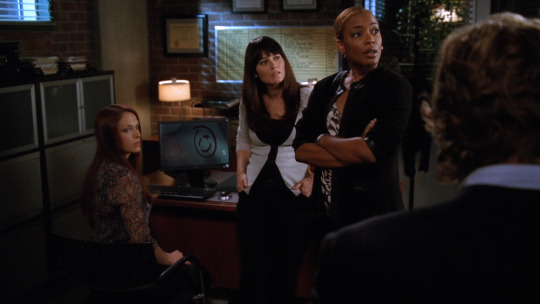
There's just something about when they're framed as a team, a group, a family.
#the way they gather in the pub#the way rigsby and cho work in tandem so well#the way lisbon is flanked by her two boys theyre basically her work-brothers#the way they all hang out in her office#yeah i know its for a horrific video in this instance but they do it frequently for less ominous occasions#tm 2x23#the mentalist#teresa lisbon#robin tunney#patrick jane#simon baker#tim kang#kimball cho#wayne rigsby#owain yeoman#grace van pelt#amanda righetti#madeleine hightower#aunjanue ellis
61 notes
·
View notes
Text
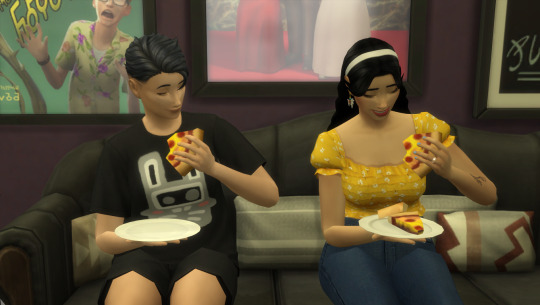


Back in the main universe*:
Megan and Iseul grab a slice of pizza each, and eat it as they watch College Cram and goof around. It gets a bit late, so Iseul tells Megan she can stay in the guest room and head back in the morning. "Sure, thanks Issy." Megan says, and she quickly texts her wife Tess to let her know she's staying over at Iseul. They get ready for bed, and say goodnight to each other, and Megan yawns as she heads to the guest room and Iseul heads to her room.
The next morning, it's sunny and warm and Megan heads out of the guest room and into the kitchen, stretching quickly as she smiles and takes in the sunlight. She plops down at the table, and texts Tess and Emily. Iseul comes into the kitchen, yawning, and smiles at Megan. "Morning." She says. "Morning." Megan says, smiling back at Iseul. "I'm gonna make eggs and toast and tea, you want some?" Iseul asks, and Megan grins. "Yes, please. I'm hungry as hell despite all that pizza last night." She says, and Iseul grins at Megan. "Same here." She says, and she begins to take out milk, eggs, and bread from the fridge, and takes out the little containers of tea grounds and sugar from her cabinets. "Want any help?" Megan asks. "Nah, I got it, thanks Megs. You're my guest/friend, I can't have you do work." Megan grins. "Well, I wouldn't mind." She says, and smiles as she watches Iseul pop the bread in the toaster and start to cook the eggs and make the tea.
#ts4#mysims#Megan Liao#Iseul Kang#*I got so excited about the post of Megan and Iseul in the AU dressed as Anne Lister/Ann Walker#that I posted that before finishing these main universe Megan and Iseul hanging out posts 😄
15 notes
·
View notes